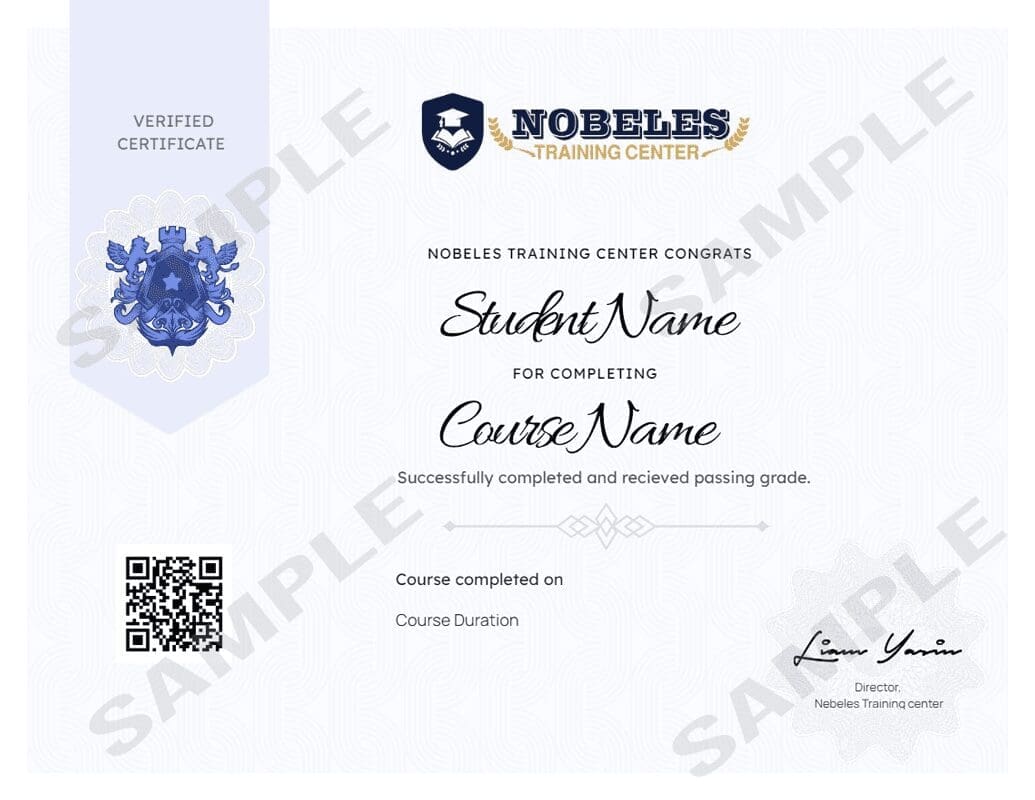Description
Curriculum
Instructor
The loss of valuable leadership can cripple a company. Business succession planning is essentially preparing successors to take on vital leadership roles when the need arises.
Whether it is preparing someone to take over as the sole proprietor of a small business or a position of leadership in a corporation, business succession planning is essential to the long-term survival of a company. This course will teach you the difference between succession planning and mere replacement planning and how to prepare people to take on the responsibilities of leadership so that the company thrives in the transition.
Curriculum
- 11 Sections
- 0 Lessons
- 9 Hours
Expand all sectionsCollapse all sections
- Succession Planning Vs. Replacement PlanningSuccession planning focuses on identifying and developing future leaders within the organization to ensure smooth transitions, while replacement planning emphasizes filling specific roles quickly when vacancies arise, often without long-term development.0
- Preparing for the Planning ProcessPreparing for the planning process involves assessing current business operations, identifying key positions, defining criteria for successors, engaging stakeholders, setting timelines, and ensuring open communication to facilitate a smooth transition.0
- Initiating ProcessInitiating the succession planning process involves outlining objectives, assembling a planning team, gathering relevant data on current leadership, conducting assessments of potential successors, and establishing a framework for ongoing evaluation and development.0
- The SWOT AnalysisThe SWOT analysis identifies Strengths, Weaknesses, Opportunities, and Threats related to succession planning, helping organizations assess internal capabilities and external factors, guiding strategic decisions for effective leadership transitions.0
- Developing the Succession PlanDeveloping the succession plan involves outlining key roles, identifying and evaluating potential successors, creating individual development plans, setting timelines for transitions, and establishing criteria for assessing readiness and performance throughout the process.0
- Executing the PlanExecuting the succession plan involves implementing development strategies for identified successors, providing mentoring and training opportunities, communicating the plan to stakeholders, monitoring progress, and making adjustments as necessary to ensure a smooth transition.0
- Gaining SupportGaining support for succession planning involves engaging key stakeholders, communicating the benefits of the plan, addressing concerns, providing training on the process, and demonstrating how effective succession contributes to the organization’s long-term success.0
- Managing the ChangeManaging the change during succession planning involves ensuring clear communication, addressing resistance, providing support and resources to all involved, monitoring the transition process, and fostering a culture of adaptability and continuous improvement within the organization.0
- Overcoming RoadblocksOvercoming roadblocks in succession planning involves identifying potential challenges, such as resistance to change or lack of resources, developing strategies to address them, fostering open communication, and involving stakeholders in finding solutions to ensure progress.0
- Reaching the EndReaching the end of the succession planning process involves evaluating the effectiveness of the transition, assessing the performance of successors, gathering feedback from stakeholders, and making necessary adjustments for future planning cycles to ensure ongoing organizational success.0
- Post-TestPost-Test0
Nobles Center

5 Students146 Courses
Review
$225.00
224 students
0 lesson
Language: English
0 quiz
Assessments: Yes
Skill level All levels
Nobles Certificate
At the end of the course, you can download a copy of your certified certificate.
Nobeles Academy
Mobile Application
Download the Nobeles center mobile app from the app app store, click the button below
Courses you might be interested in
Working in a home office requires a unique set of skills. Teleworkers or virtual employees have additional challenges created by not being in a centralized office. Communication issues alone make...
-
1 Lesson
$175.00
Having the technical skills and knowledge to successfully execute your job duties is only one part of being the best you can be in the workplace. In addition to these...
-
0 Lessons
$225.00
The cloud has become a vital component for business as technology becomes embedded in modern life. Every leader needs to understand the cloud and how it operates, as well as...
-
0 Lessons
$195.00
Phone skills are a highly valuable tool to have in an employee’s skill-set, and Call Center Training will help provide those skills. This course will help = improve phone skills...
-
0 Lessons
$275.00






